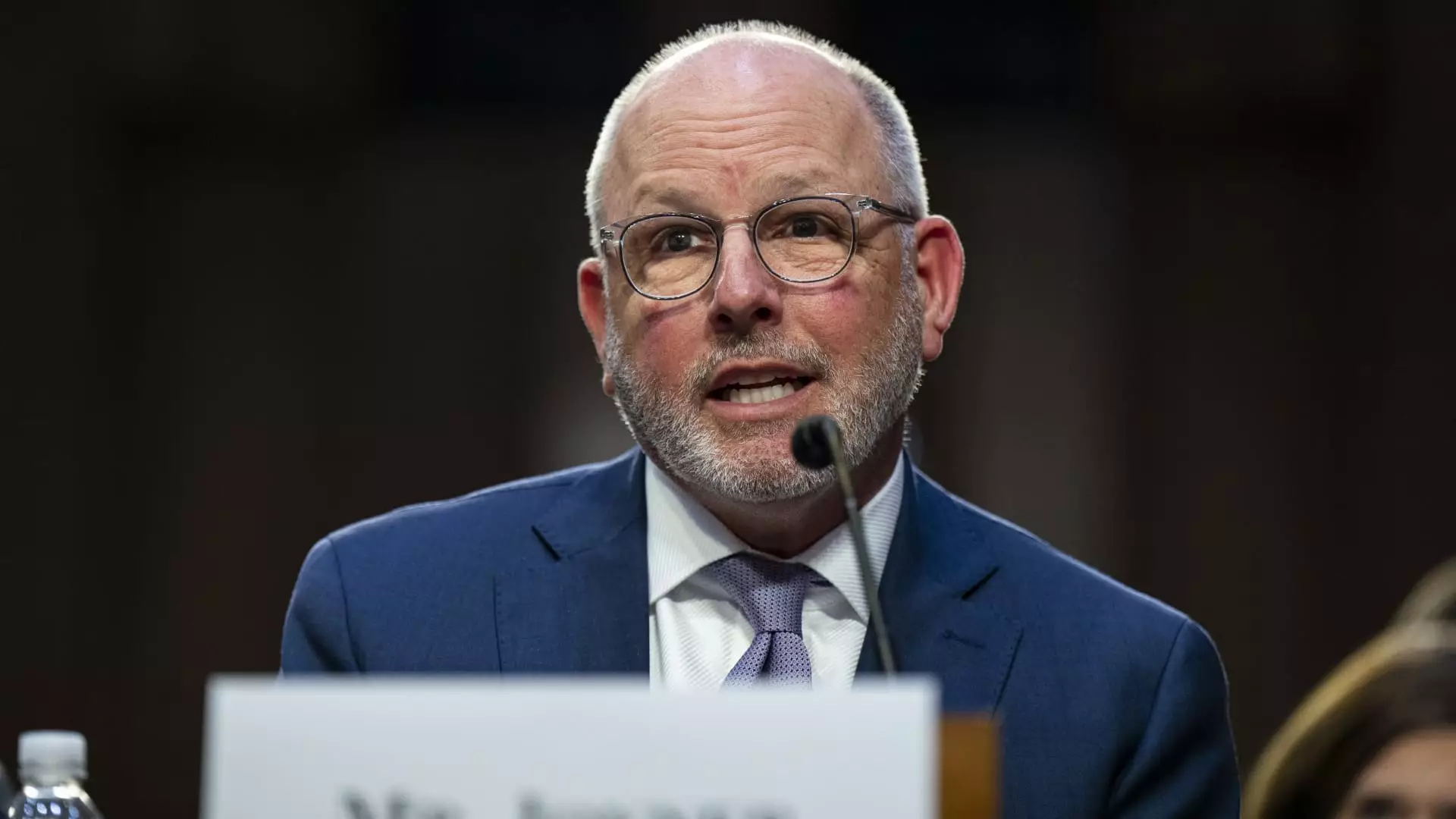In a significant leadership shift, CVS Health has appointed David Joyner as its new CEO, replacing Karen Lynch. This decision arrives at a time when the company is grappling with the dual pressures of declining profitability and stock performance. The announcement, made public on a Friday but effective from the previous Thursday, comes in the wake of a troubling year where CVS shares have plummeted nearly 20%. As the company confronts rising medical costs and challenges in its retail pharmacy sector, it faces an uphill battle under Joyner’s stewardship.
The financial landscape for CVS Health has been fraught with difficulty, as evidenced by a staggering 11% drop in share prices during premarket trading following the leadership announcement. The company’s insurance unit, Aetna, is under considerable strain from increasing medical costs, which have risen sharply in the wake of the COVID-19 pandemic. This has been coupled with a declining retail pharmacy business that is suffering from reduced consumer spending and challenging reimbursement dynamics for prescription drugs. Analysts have observed that CVS’s troubles may be symptomatic of larger industry trends, but the company’s specific circumstances have exacerbated the situation.
In a stark acknowledgment of its financial difficulties, CVS had already cut its profit outlook for three consecutive quarters. It announced a cost-reduction initiative targeting $2 billion over the coming years as part of a strategic response to its precarious financial state. Predictions for adjusted earnings in the third quarter have been set between $1.05 and $1.10 per share, a steep adjustment reflecting the elevated expectations of ongoing medical expense pressures.
The new leadership is not solely a result of internal dynamics; external pressures have been mounting as well. Glenview Capital, a significant CVS shareholder, has been vocal in its desire for changes within the company, urging a reevaluation of its business model. This has led CVS’s Board of Directors to seek advice from strategic consultants to explore potential restructuring options, including the possibility of separating its insurance and retail pharmacy operations.
Despite these pressures, CVS has decided to keep its core structure intact for now, with Joyner leading this effort moving forward. His history with the company is extensive; Joyner previously played a pivotal role in overseeing CVS’s pharmacy services division and returned to the company after a brief retirement to steer Caremark, one of the largest pharmacy benefit managers in the United States.
Joyner’s appointment is seen as a move to leverage his deep industry knowledge to tackle the formidable challenges CVS faces. His statement following the announcement indicates a strong personal investment in the company’s future: “I came back to CVS Health in 2023 because I believed I could give more to the company.” His extensive experience in the pharmacy benefits landscape, combined with his previous tenure at Aetna, positions him uniquely to confront the intricacies of the industry.
However, Joyner’s leadership will not be without its hurdles. One significant challenge is the growing scrutiny over pharmacy benefit managers, amplified by the Biden administration’s focus on pharmaceutical pricing. Recently, the Federal Trade Commission has initiated legal action against Caremark and other major PBMs, accusing them of practices that inflate drug costs for patients. This regulatory environment will undoubtedly shape Joyner’s strategy moving forward.
As CVS approaches its next earnings report on November 6, the stakes are high. Analysts and investors will be closely watching not only the company’s financial results but also any indications of structural changes in response to its deteriorating performance. Joyner will have to navigate a tightrope, aiming for margin improvements in the Medicare Advantage sector while simultaneously combating the ramifications of escalating medical costs.
With the company’s medical benefit ratio—a critical metric indicating the balance between premiums collected and medical costs paid—expected to be around 95.2% this quarter, the situation looks precarious. This ratio signifies that CVS is operating at a thin margin, which could pose further risks to its profitability.
While David Joyner’s return to CVS as CEO represents a strategically significant shift for the company, it underscores the profound challenges ahead. The healthcare landscape is changing rapidly, and CVS will need to adapt to these dynamics to regain its financial footing. The next few months will be crucial as Joyner implements his vision and strategy, signaling whether CVS can navigate this tumultuous period effectively.

